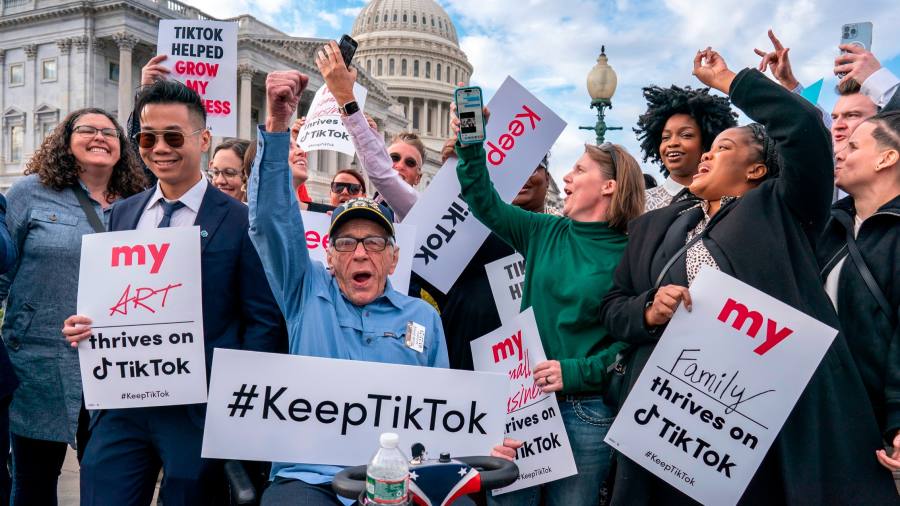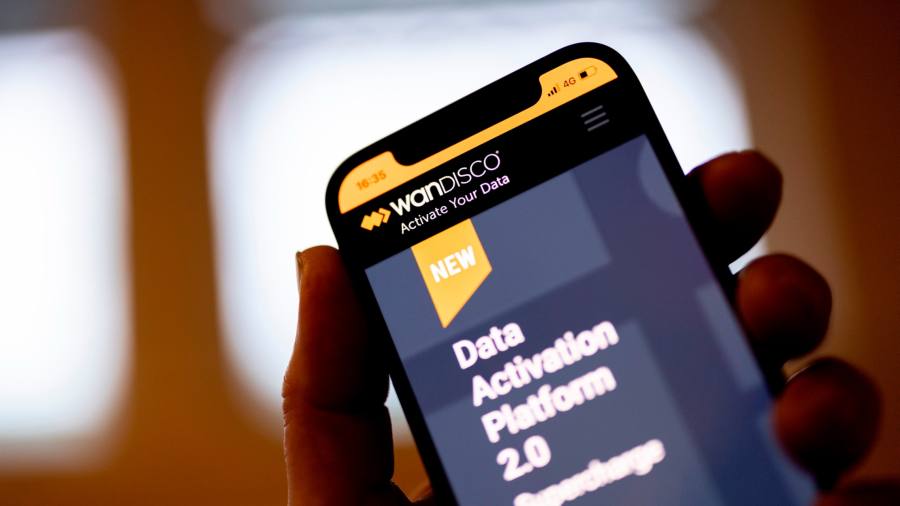
What is America to do about TikTok? Its quirky videos have attracted 150mn active US users. Yet US officials fear Beijing could subvert the Chinese-owned app to spy on Americans or spread propaganda. Many parents, meanwhile, worry about TikTok’s impact on teenage mental health. Talks with a US watchdog over the app’s plans to ringfence US data on American servers have foundered. CEO Shou Zi Chew’s recent appearance before lawmakers failed to assuage their concerns. The Biden Administration has issued an ultimatum to TikTok’s Chinese owners: sell the US unit — which Beijing has said it would oppose — or face a potential ban. But a ban would infuriate legions of young Americans.
The national security case against TikTok is that companies with a presence in China are obliged to hand over data if asked to assist state intelligence. TikTok’s Chinese parent ByteDance is 60 per cent owned by global investors; employees have 20 per cent. But its Chinese founder Zhang Yiming owns the rest and has control through supervoting shares, people close to ByteDance say.
Chew insists TikTok has never been asked to submit US data to Chinese officials, and never would. No evidence of mass surveillance has been presented. But cases have emerged in the past year of China-based ByteDance employees accessing American user data, including that of journalists. Security officials warn, too, that TikTok’s potent algorithm could be tweaked to sow misinformation on behalf of Beijing.
TikTok has failed to convince the Committee on Foreign Investment in the US (Cfius) that its $1.5bn “Project Texas” plan to secure US user data on Oracle servers is watertight. To resolve the ensuing US-China stand-off, a TikTok sale would be preferable to a ban. But China has added ByteDance’s algorithm to a list of restricted exports, and says it would oppose any forced TikTok spin-off.
Banning TikTok would amount to censorship of a service used by millions, and would most likely be subject to a First Amendment challenge. Beijing would see it as a further US attempt to crush its corporate success stories. And while it can be seen as mirroring China’s restrictions on Facebook, Google and Twitter, it would give cover for any foreign government to ban US tech companies on similar grounds.
The prospect of a ban might yet persuade TikTok to offer Cfius further safeguards. But the US should be seeking to resolve issues around not just the Chinese-owned app but all tech companies by putting in place a comprehensive federal framework on data privacy, for foreign and domestic businesses, in place of today’s patchwork of shifting laws. It should bar data transfer to foreign countries, and curb data brokers that harvest citizens’ personal information in industrial quantities and sell it to all comers
Though TikTok is today’s teen favourite, the other major priority of protecting teenagers from online harms would similarly be better achieved through federal safeguards applying to all social media companies. US controls fall short of those in the EU, and those set to be adopted by the UK.
Many states are already taking their own steps; Utah last month became the first to require social media firms to get parental consent for children to use apps, and to verify users are 18 or older. Similar age controls should be adopted at a federal level, along with tougher requirements on moderating and policing harmful content, and rules governing advertising to under-18s. America needs to protect its citizens, its children above all. But that means properly regulating its own companies, as well as China’s.



